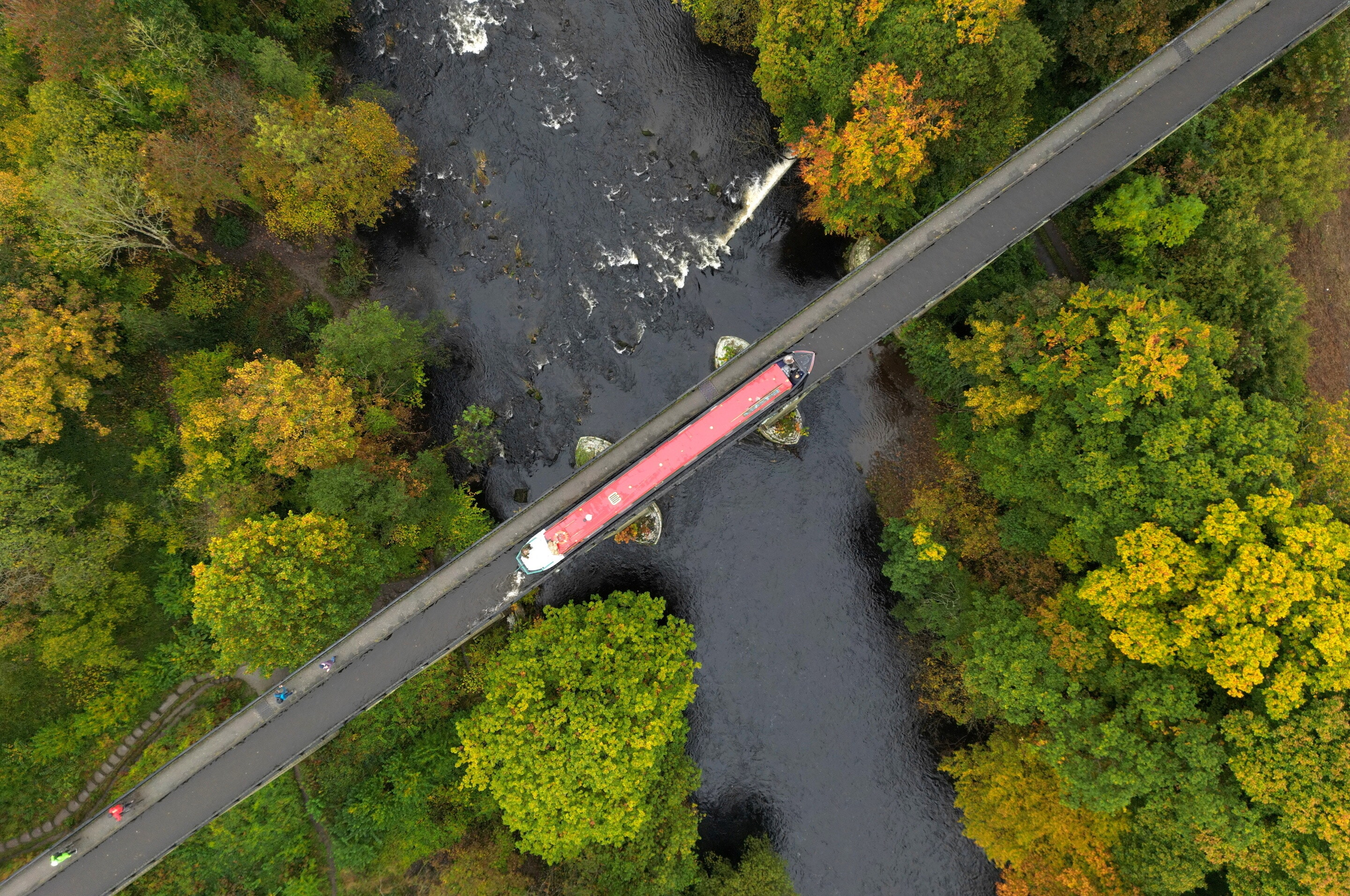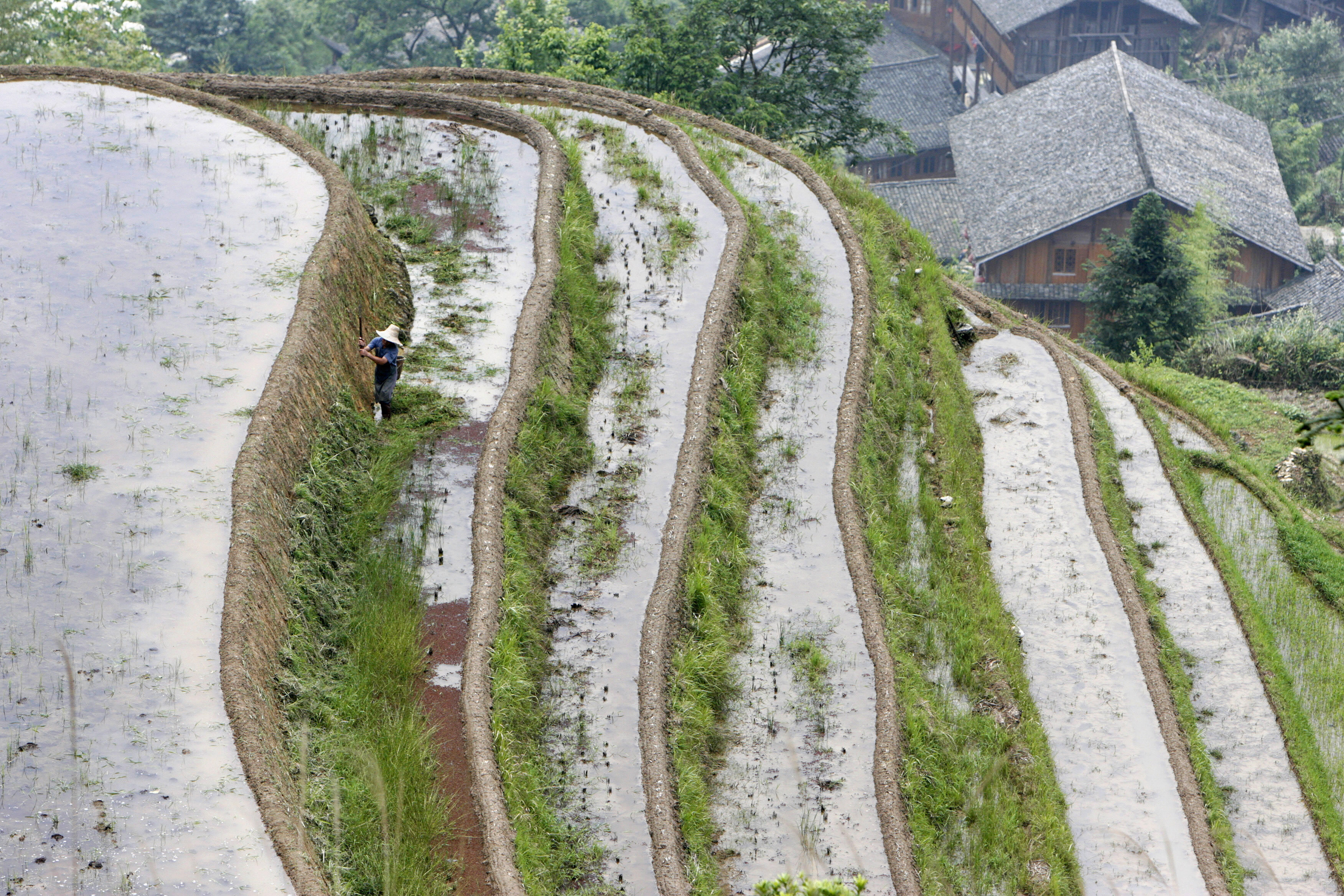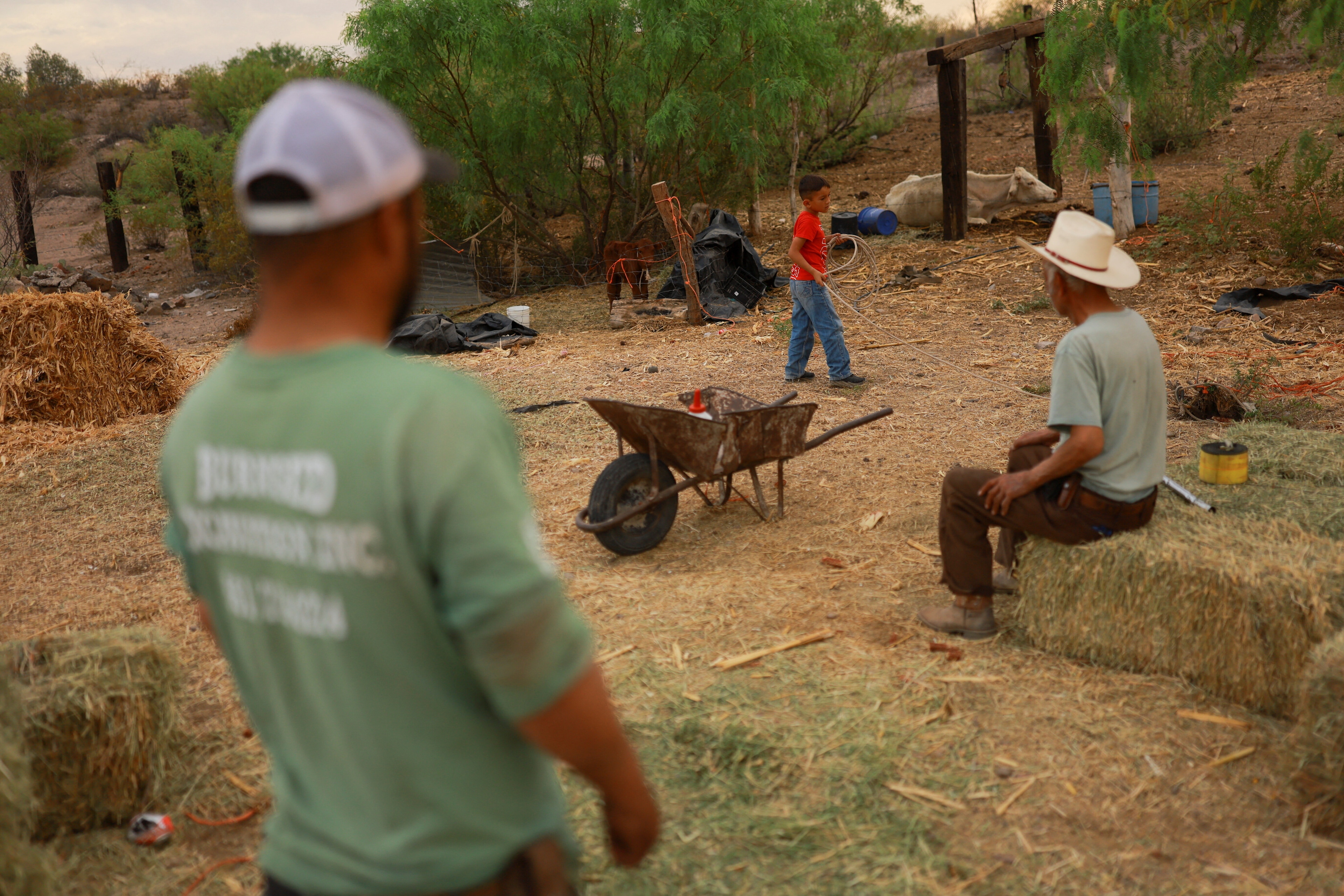UK launches its first ever vegan-only butchers

A member of staff works inside 'Rudy's Vegan Butcher' shop, amid the coronavirus outbreak.
Image: REUTERS/Henry Nicholls - RC2KTJ96ORJF
Stay up to date:
Future of Consumption
- The first ever vegan butchers is opening in the UK, located in London.
- The products served are made to emulate meat products, by look, texture and taste.
- However, they are made solely from seitan and soya.
In a corner of north London, a new gleaming butchers is preparing to open.
The only thing it lacks is meat.
To coincide with World Vegan Day on 2nd November, Britain’s first permanent vegan butcher, Rudy’s, opened, to sell meat-free versions of traditional products such as baycon, soysage and turk’y.
Demand for vegan products has surged in recent years in Britain, with increasing numbers of people cutting out animal-derived ingredients completely, while others reduce the amount of meat and dairy they consume each week.
“People understand what it is that we’re selling,” co-founder Matthew Foster told Reuters.
“It’s all designed to emulate meat. It tastes like meat, it’s got meat-like texture.”
Law firm EMW reported a 128% jump in new trademarks registered for vegan food in the UK last year, with both large corporates and small companies registering such trademarks as vegan ice cream and pastries.
The team behind the new butchers started out in 2017 with a vegan diner and are now looking to offer goods, including whole dinner kits to be made in the home.

The substitutes, set out in the brightly lit shop with white walls and sketches of animals on the walls, are made from soya and seitan.
The surge in demand for alternative food products has recently sparked a debate over whether restaurants and shops should be allowed to label products as “veggie burgers” or “vegan sausages” or whether it can confuse the consumer.
Lawmakers in the European Union ruled earlier in October that banning such terms, as advocated by farmers, would discourage consumers from shifting to more plant-based diets.
Accept our marketing cookies to access this content.
These cookies are currently disabled in your browser.
Accept our marketing cookies to access this content.
These cookies are currently disabled in your browser.
Accept our marketing cookies to access this content.
These cookies are currently disabled in your browser.
Don't miss any update on this topic
Create a free account and access your personalized content collection with our latest publications and analyses.
License and Republishing
World Economic Forum articles may be republished in accordance with the Creative Commons Attribution-NonCommercial-NoDerivatives 4.0 International Public License, and in accordance with our Terms of Use.
The views expressed in this article are those of the author alone and not the World Economic Forum.
Related topics:
Forum Stories newsletter
Bringing you weekly curated insights and analysis on the global issues that matter.
More on Food and WaterSee all
Sikander Bizenjo and Eric Shahzar
August 14, 2025
Aurora Matteini and Derek Baraldi
August 6, 2025
Mauro Gianni and Isidora Kosta
August 4, 2025
Hu Xiangdong and Felipe Carazo
August 1, 2025
Jose Ignacio Galindo and Nicolas Wertheimer
July 24, 2025






